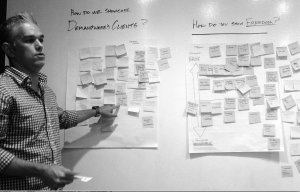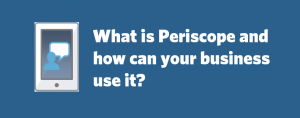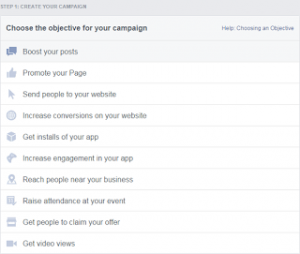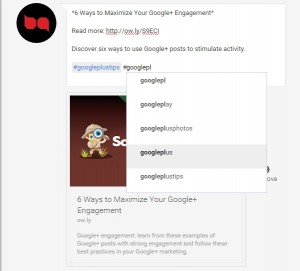As a 10-year practicing minimalist and productivity junkie, I know how attractive and elusive the perfect state of productivity is. The desire of being productive can also be one of the main drivers of inefficiency.
For example, I have an app for just about every metric or tracker-centric activity you can think of. Fasting, meditation, time spent reading, daily habit tracking, etc.?—?the list is endless. Sometimes, I use a habit tracker just to remember not to forget to track something else. This is far from efficient.
The perfect state of productivity should be catered to the individual. It should comprise of activities and goals that fit well into a person’s state of well-being and output. I thrive at night and hate mornings. This goes against one of the most common productivity trends on social media right now?—?the belief that early risers accomplishing more. Nonsense. They might accomplish more before noon than I do, but not in 24 hours.
The point is, unconventionality and originality can help you strike the perfect balance between mental and physical health and output. This article highlights a few of the more unconventional pieces of productivity advice that I have found to be extremely valuable.
1. Pulse Your Productivity
Your mind is not designed to work for 8 hours straight. Doing so is counterproductive, despite societal norms that push for standard working hours and shifts. Researchers at Stanford found a positive correlation of hours worked and decreased productivity. Instead of eating at your desk or pushing for more output, embrace the chance to take a long lunch, meditate, or go for a walk. Your body will thank you.
The truth is that your body follows internal daily cycles that apply to days and nights?—?circadian and ultradian rhythms. The circadian rhythm controls your mental, physical, and behavioral changes in your body in a 24-hour cycle that corresponds to darkness and light in your environment.
With healthy sleep being in shifts of 90-minute cycles of deep restorative and the lighter, dream-filled REM cycles, healthy days are also designed to have similar 90-minute breaks in between deep and light activities. You will have half moments where you are fully focused and moments of reduced focus.
For you to maximize your productivity, you need to stop going full-throttle as long as you usually do. Try working in 60 to 120 minutes intervals with the focus being on reaching a level of deep work. Schedule your most important tasks and goals within those segments. In-between, if you need a break, take a break. Four to five hours of solid work per day will take you farther than exhaustion fueled mental fatigue.
2. Be a Procrastinator
Procrastination might help you get the most out of your day, but you need to be systematic about it. If you have something to get done that is important and causing dread, it might be more productive to work towards that task versus trying to tackle it first thing in the morning.
According to a study by the Harvard Business School, getting to track the small wins will enhance your motivation, making it easier for you to complete the bigger tasks. By crossing out tasks off your list, you will have an increased effect on the production of dopamine, boosting your energy levels and motivation.
The trick is to stay strategic and in control of planned procrastination. Do not let procrastination become a habit. If that happens, you could find yourself in a spiral of loss of control and even become overwhelmed.
3. Laugh It Out
As someone that works remotely for my own business, time can become an enigma. I can end up working much longer hours and slowly that produces a loss of productivity. One of my favorite strategies to cope with work is to take a break to laugh. In my case, I go on Youtube at various times of the day and watch stand up comedy to disconnect from work.
Laughing makes me realize a few important things. First, work is not that important in the grand scheme of life. If you have a bad day, screw up an assignment, are late to a meeting, or even lose your job, it is still not the end of the world. Our self-identity is so tied up in work that we think what we do professionally is vastly more important than it is.
Laughing reminds you no to take things too seriously and is proven to help boost productivity as it lowers stress levels, boosts morale, and can build trust between coworkers or clients. Even if you work in an office, try to incorporate laughter into your daily routine to help boost your productivity.
4. Micro-Rewards
Often, people look externally for validation that they are doing something right. This can come in the form of work accolades or general praise. The problem is even if these external validators inspire motivation, they won’t be enough to sustain motivation and productivity over time.
You should learn to reward yourself daily with micro-rewards for completing what it is you want to accomplish. The key to micro-rewards is discipline and dedication. These rewards can be as simple as your favorite food later in the night or watching an episode of your favorite series.
You can even leverage incentive framing to add a financial element to your micro-rewards. Studies have found that adding monetary rewards to tasks will drastically increase motivation. For us entrepreneurs, this is one of the first aha moment that we experience. If we work more, we can presumably earn more. This is powerful for motivation and as a result, productivity.
5. Allow Yourself to Be Distracted
This piece of advice could be misconstrued so I want to explain it clearly. Multi-tasking and distraction can cause your productivity to decrease. It’s highly recommended that you eliminate the sources of distraction when entering stages of deep and focused work. Turn your phone off. Set browser restrictions to prevent website hopping.
While at this stage, if you feel your mind drifting, it might be a sign that you are fatigued and need a break. Just like with physical activities, work that requires high levels of mental focus will eventually lead to decreased mental capacity. When this happens, designate a few minutes to recharge and welcome some distraction.
Productivity might be the new normal, but it only undermines your productivity, as reported by the American Psychological Association. Next time your mind starts to drift off, take the time to get distracted. Take the time to relax, go get a snack, chat with a friend, go for a walk, or take a power nap.
Business & Finance Articles on Business 2 Community
(42)






